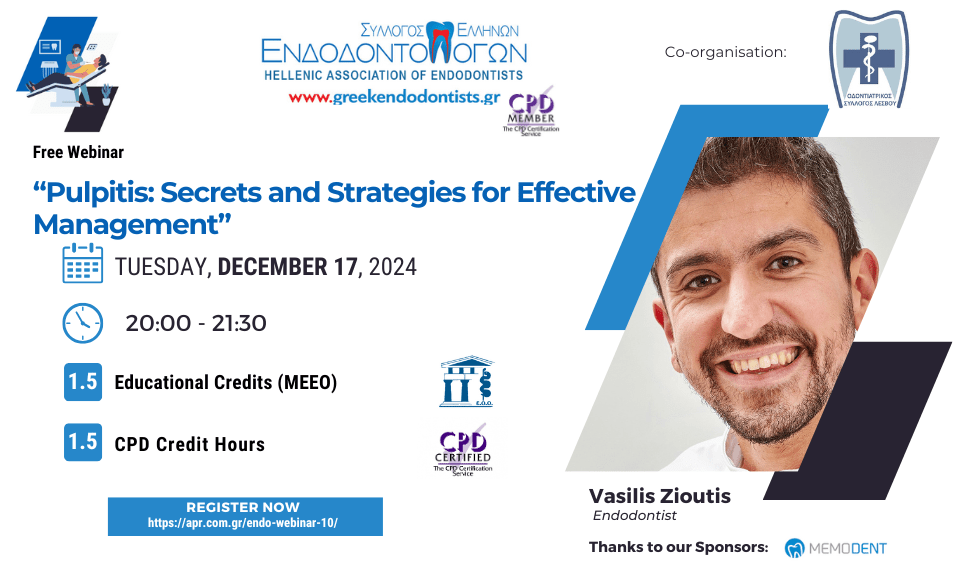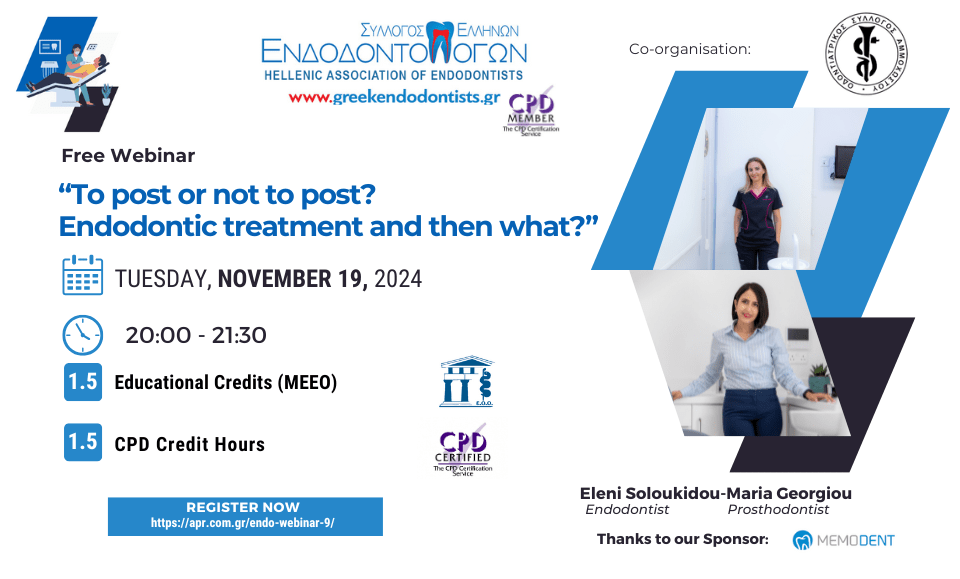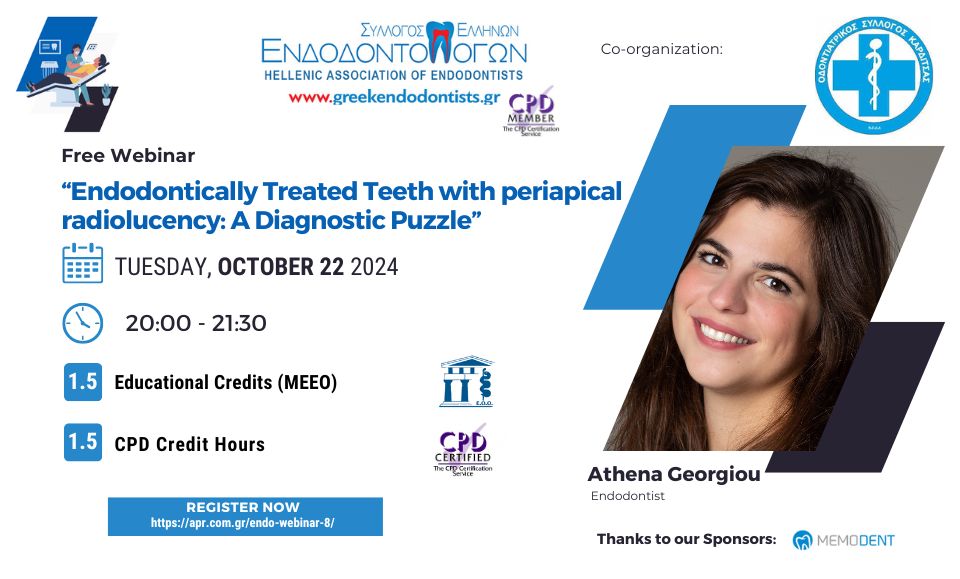Single- Versus Multiple-Visit Endodontic Treatment
Informations
Dear Colleagues, Our next webinar is scheduled for Tuesday 16/11/2021 at 20:00, Konstantina Tzouma will be covering the topic “Single-Versus Multiple- Visit Endodontic Treatment: Advantages and Disadvantages that Can Affect our Decision Making”. his webinar is a collaboration of the Hellenic Association of Endodontists and the Dental Society of Kavala. Attendees will be credited 1,5 CE credits (MEEO) of the Hellenic Association of Endodontists as well as 1,5 CPD Credit Hour. The language of the webinar will be Greek.
Days
Hours
Minutes
Seconds
WEBINAR SPONSOR


Abstract
Endodontic therapy is a treatment that can be carried out in a single or multiple visits. How the number of sessions required for the completion of the procedure affects the outcome of the treatment is still a controversial subject. Opinions vary as to the relative risks and benefits of carrying out the procedure in a single visit or in multiple appointments.
An important factor that used to be the main reason for completing the endodontic therapy in more than one visits was the time required to execute all the therapeutic steps required for its completion. With the advantages of contemporary endodontics, the development of new materials, techniques and instruments along with the availability of Cone Beam Computed Tomography (CBCT) and magnification devices such as loupes and microscope, the root canal treatment has become more predictable and the time needed to perform most endodontic procedures has reduced significantly. Therefore, clinicians nowadays can successfully execute single-visit endodontic treatments.
Several advantages and disadvantages exist for both single and multiple-visit endodontic treatments. Factors to be considered prior to the treatment are the operator’s ability and clinical experience, the preoperative tooth conditions (vital or nonvital tooth, symptomatic or asymptomatic, presence or absence of swelling), adequate treatment time, patient’s time constraints, medical history and attitude, as well as anatomic and biologic considerations.
This presentation will thoroughly review the literature on this topic. Additionally, clinical scenarios will be presented in order clinicians to familiarize with the selection of the appropriate treatment regimen. Lastly, possible complications regarding each approach and their clinical management will be discussed.
Short CV
Konstantina Tzouma
Dr. Konstantina Tzouma, DDS is an Assistant Professor at Eastman Institute for Oral Health, in Rochester NY, where she serves as Clinical Director of Endodontics in the Department of General Dentistry. Dr. Tzouma received her DDS degree from the Aristotle University of Thessaloniki Dental School in 2009, where she graduated second in her class. Afterwards, she was accepted to New York University College of Dentistry where she received a certificate in Endodontics in 2011 followed by a fellowship in Endodontics and Restorative Dentistry in 2012.

In 2013, she entered the two-year Advanced Education in General Dentistry (AEGD) program at Eastman Institute for Oral Health, University of Rochester and then completed a one-year hospital-based residency at Strong Memorial Hospital in Rochester, NY.
Currently, Dr. Tzouma is involved in teaching and training post-graduate residents on endodontic procedures with step-by-step guidance and direct supervision. In addition, she treats patients in need of more complex endodontic services at the faculty practice clinic.
Dr. Tzouma is an active member of the American Dental Association, New York State Dental Association, and American Association of Endodontists.



